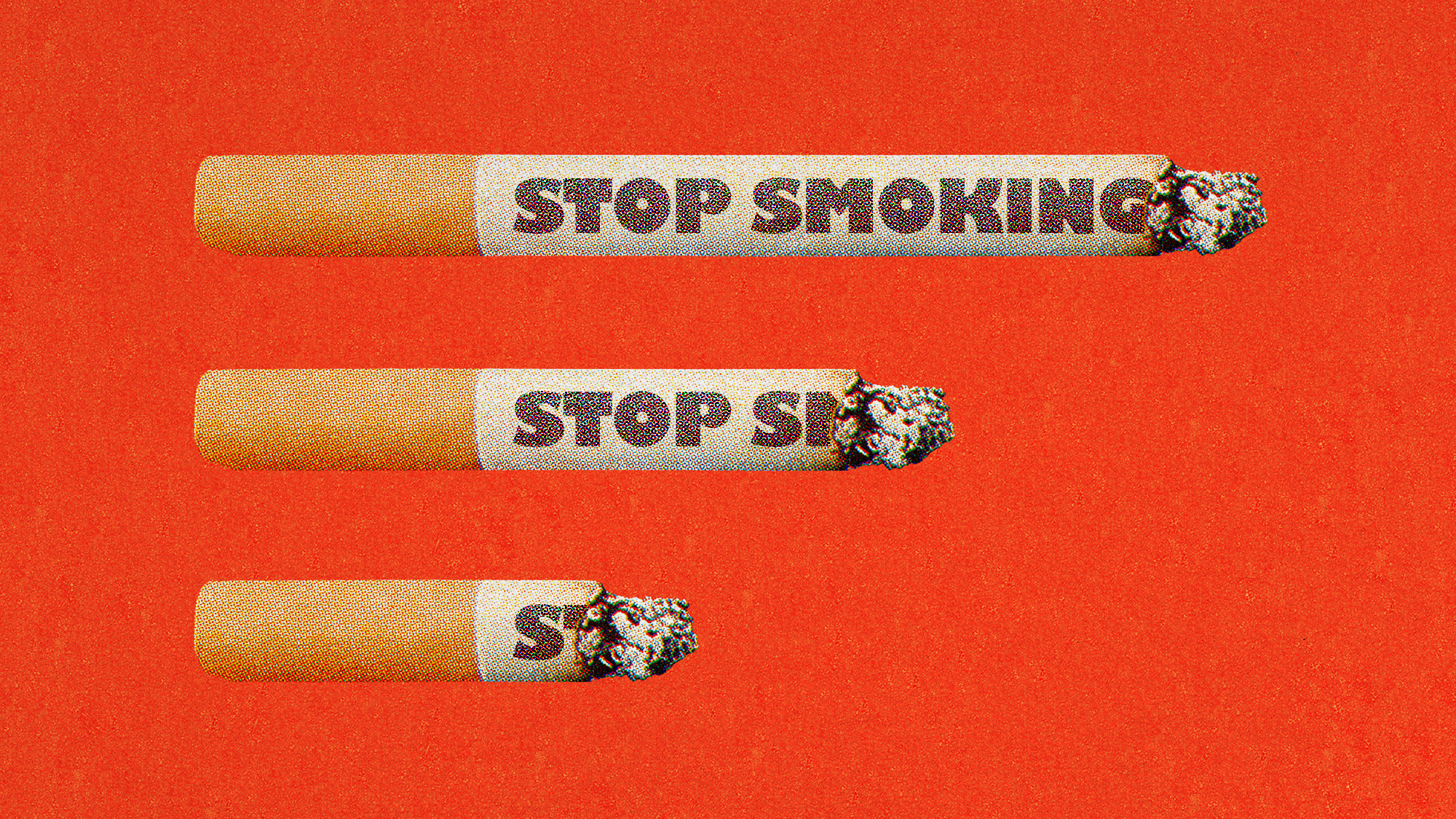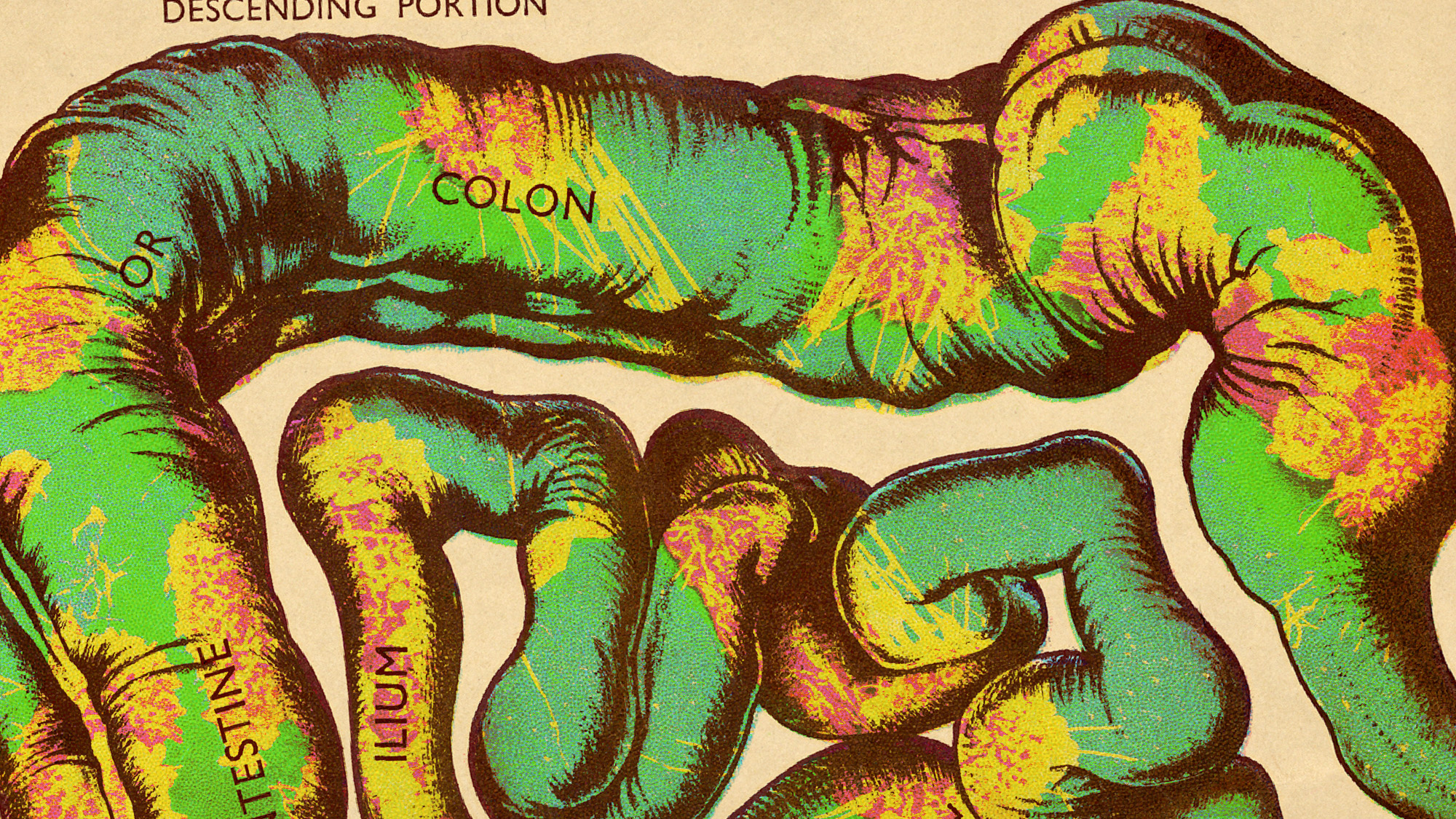Lifestyle choices are behind four in 10 cancers
Cancer Research UK says that giving up smoking and cutting down on calories could see cancer rates fall dramatically

A free daily email with the biggest news stories of the day – and the best features from TheWeek.com
You are now subscribed
Your newsletter sign-up was successful
More than four out of 10 cancers – and as many as 2,500 per week in the UK alone – could be prevented if people led healthier lives, experts say.
New figures from Cancer Research UK show that smoking is the biggest avoidable risk factor for cancer, followed by unhealthy diets and drinking.
Dr Katrina Brown, the lead author of the study at Cancer Research, told The Guardian: “Lung cancer contributes well over half of those smoking-related cases, but there are also thousands of cancers of smoking-related bladder, oesophageal and bowel cancers every year to name just a few.”
The Week
Escape your echo chamber. Get the facts behind the news, plus analysis from multiple perspectives.

Sign up for The Week's Free Newsletters
From our morning news briefing to a weekly Good News Newsletter, get the best of The Week delivered directly to your inbox.
From our morning news briefing to a weekly Good News Newsletter, get the best of The Week delivered directly to your inbox.
The study, published in the British Journal of Cancer, is based on surveys, cancer registries and analyses of data from scientific papers. According to its findings, alcohol, low-fibre diets and “infections such as HPV” each account for just over 3% of cancer cases per year in the UK.
Exposure to substances such as asbestos and UV radiation in the workplace each caused almost 4% of cancer cases, while air pollution, consumption of processed meat and not breastfeeding each accounted for less than 2% of cancer cases.
Smoking rates in the UK are currently understood to be falling at a rate of about 1% a year. Cancer Research has also expressed its concern over excess weight and obesity – the second leading preventable cause of cancer – which accounts for 6.3% of all UK cancer cases.
The team said they hoped the government would learn from “the success of measures such as advertising restrictions, tobacco taxes and standardised packaging in cutting smoking rates”, and suggested that major brands should promote healthier options.
A free daily email with the biggest news stories of the day – and the best features from TheWeek.com
Public Health England recently published a rule of thumb guideline to combat the obesity crisis. It said people should aim for 400 calories at breakfast, 600 calories for lunch and 600 calories for dinner. Fast-food chains such as McDonald’s, Subway and Greggs have signed up to the “400-600-600” plan and agreed to signpost customers towards lower-calorie options.
-
 Antonia Romeo and Whitehall’s women problem
Antonia Romeo and Whitehall’s women problemThe Explainer Before her appointment as cabinet secretary, commentators said hostile briefings and vetting concerns were evidence of ‘sexist, misogynistic culture’ in No. 10
-
 Local elections 2026: where are they and who is expected to win?
Local elections 2026: where are they and who is expected to win?The Explainer Labour is braced for heavy losses and U-turn on postponing some council elections hasn’t helped the party’s prospects
-
 6 of the world’s most accessible destinations
6 of the world’s most accessible destinationsThe Week Recommends Experience all of Berlin, Singapore and Sydney
-
 The truth about vitamin supplements
The truth about vitamin supplementsThe Explainer UK industry worth £559 million but scientific evidence of health benefits is ‘complicated’
-
 Covid-19 mRNA vaccines could help fight cancer
Covid-19 mRNA vaccines could help fight cancerUnder the radar They boost the immune system
-
 Quit-smoking ads are being put out
Quit-smoking ads are being put outUnder the radar The dissolution of a government-funded campaign could lead to more smokers in the future
-
 Deadly fungus tied to a pharaoh's tomb may help fight cancer
Deadly fungus tied to a pharaoh's tomb may help fight cancerUnder the radar A once fearsome curse could be a blessing
-
 'Poo pills' and the war on superbugs
'Poo pills' and the war on superbugsThe Explainer Antimicrobial resistance is causing millions of deaths. Could a faeces-filled pill change all that?
-
 China's soaring dementia rates
China's soaring dementia ratesUnder The Radar Government launches action plan after cases in China increase 50% faster than global average
-
 The Y chromosome degrades over time. And men's health is paying for it
The Y chromosome degrades over time. And men's health is paying for itUnder the radar The chromosome loss is linked to cancer and Alzheimer's
-
 A bacterial toxin could be contributing to the colorectal cancer rise in young people
A bacterial toxin could be contributing to the colorectal cancer rise in young peopleUnder the radar Most exposure occurs in childhood